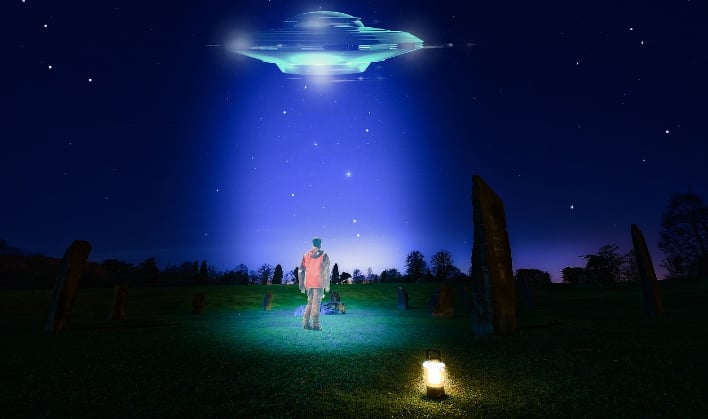Government Whistleblowers Could Get Immunity For Coming Forward With UFO Close Encounters

Over the years, many have come forward with stories of extraterrestrial encounters, only to be met with skepticism and fraud allegations. U.S. troops and government contractors have been reluctant to share their stories of UFO sightings for many reasons, no matter how valid they may be. Add to that the fact that the government has been accused of holding back evidence of UAPs and related programs, and you have a recipe for an environment that is not very friendly for anyone to come forward with possible evidence of their own.
Rep. Mike Gallagher hopes to quell many of those concerns with an amendment he has proposed. It basically states that regardless of any previous written or oral non-disclosure agreements "that could be interpreted as a legal constraint on reporting by a witness of an unidentified aerial phenomena," those with information about UAPs would not be in violation of federal classified information laws if they chose to come forward.
In addition to the above, the amendment also calls for the head of the new Airborne Object Identification and Management Synchronization Group (AOIMSG) to establish "a secure system" for receiving reports of "any events relating to" UAPs and any government or government contractor activity or program related to UAPs, often referred to as UFOs. The AOIMSG is tasked with investigating UAPs on behalf of the Defense Secretary and Director of National Intelligence.

If anyone does come forward with information and finds themselves being retaliated against, that person "may bring a private civil action for all appropriate remedies, including injunctive relief and compensatory and punitive damages, against the Government or other employer who took the personnel action, in the United States Court of Federal Claims," according to the amendment.
The main focus of the amendment seems to be aimed at providing whistleblower-like protections for those who work for federal agencies and contractors working with the government.
Rep. Tim Burchett told reporters following a congressional hearing on UAPs, "By telling you that they have whistleblower protection or something, that's bogus until it's in the law. For us to sit here and talk about it is bogus. And you really need to provide them with some sort of ability to come in here and not be persecuted and not have a blemish on those records."
Top Image Credit: Christian Plass from Pixabay

